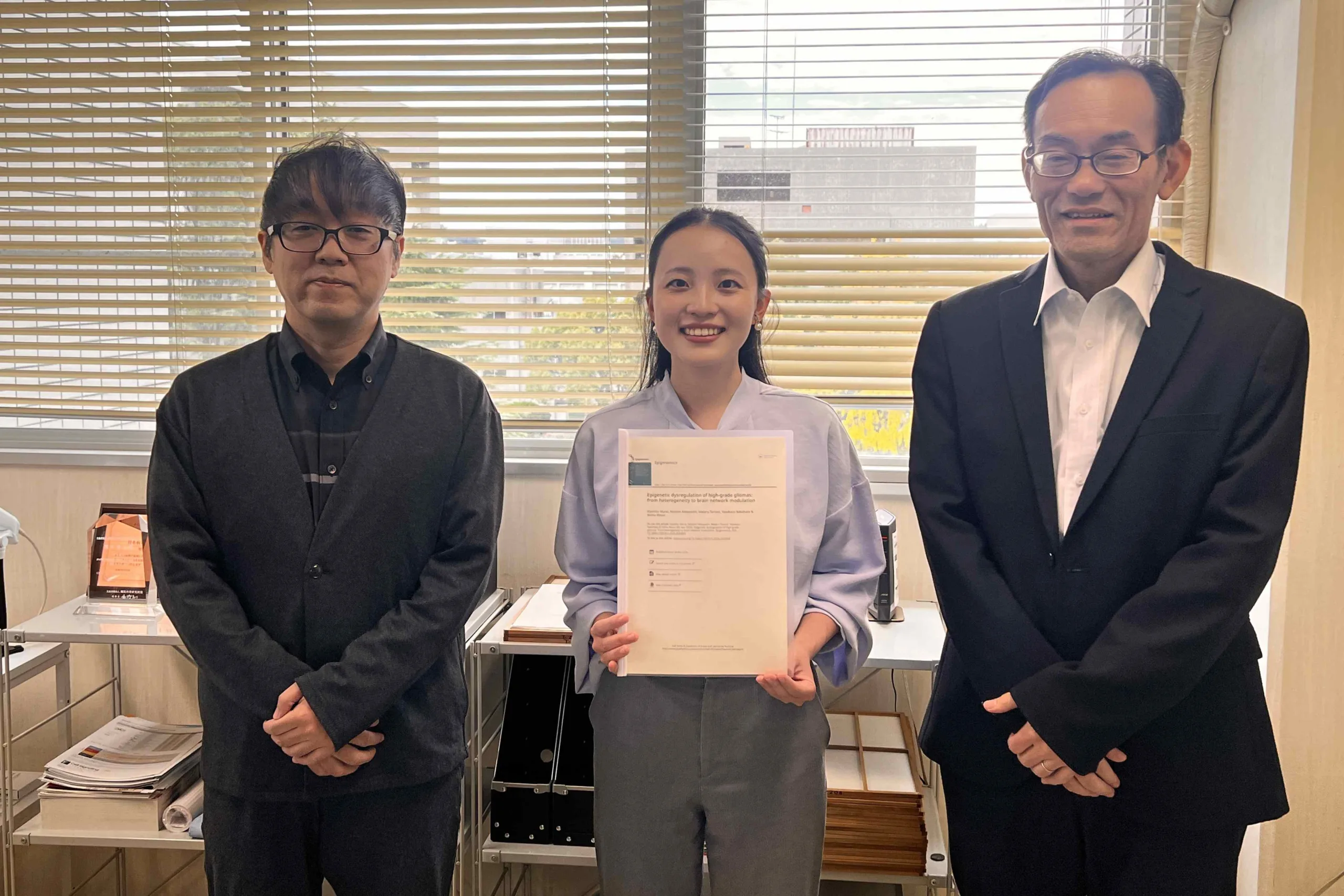

A Review Article Summarizing the Latest Findings on Epigenetic Dysregulation in Malignant Brain Tumors Has Been Published in an International Scientific Journal
A review article summarizing the latest research advances on epigenetic abnormalities in malignant brain tumors, conducted by Nozomi Kobayashi (Physician-Scientist Training Program, School of Medicine) and Lecturer Kiyohito Murai (Department of Integrative Neuroscience, Graduate School of Biomedical Sciences), has been published in the international journal Epigenomics.
Epigenetic dysregulation of high-grade gliomas: From heterogeneity to brain network modulation (DOI: 10.1080/17501911.2025.2583895)
High-grade gliomas (HGGs), represented by glioblastoma, IDH-wildtype and diffuse midline glioma, H3 K27-altered, are among the most aggressive brain tumors in adults and children. In recent years, abnormalities in epigenetics—systems that regulate and transmit gene expression without altering the underlying DNA sequence—have emerged as a fundamental hallmark of HGG biology. These epigenetic alterations not only contribute to the molecular classification of HGGs but also underlie their malignant functional properties. This review summarizes the latest knowledge on epigenetic dysregulation in HGGs, with a focus on key regulatory mechanisms such as DNA methylation, histone modifications, chromatin remodeling, and non-coding RNAs, as well as their pathological significance. Furthermore, the review highlights our recent findings regarding how epigenetic heterogeneity influences neuron-glioma networks within the brain. By outlining the epigenetic landscape of HGGs, this work provides an important foundation for future research and therapeutic innovation in the field of malignant brain tumors.
https://www.tandfonline.com/doi/full/10.1080/17501911.2025.2583895
